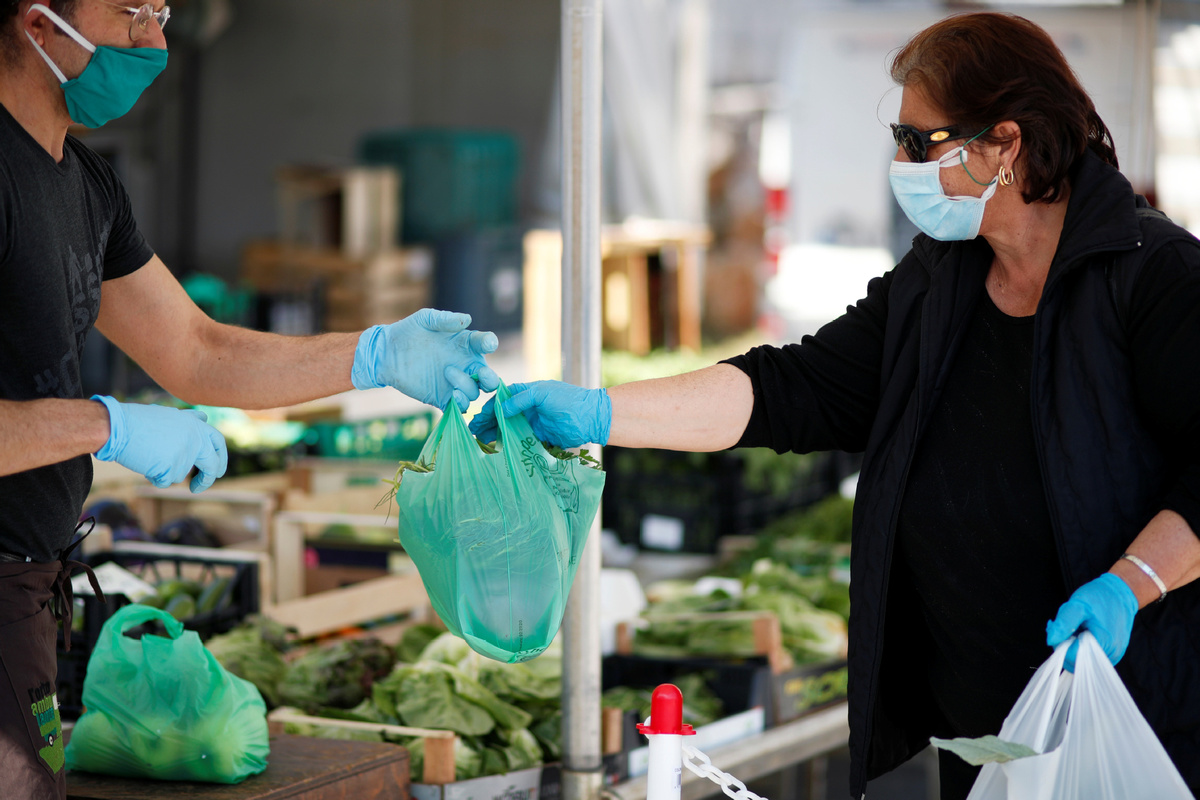WHO appeals for aggressive measures as European nations see silver linings in combating COVID-19


BRUSSELS/GENEVA - As more European nations are pondering next steps to ease restriction amid encouraging news, the World Health Organization (WHO) warned on Monday that the novel coronavirus remains "extremely dangerous", stressing the necessity for aggressive measures to peg back the pandemic.
Strict lockdowns for weeks have brought about encouraging signs in various European nations.
In Italy, the hardest-hit European nation in terms of death toll, the downward trend in new infections detected since last week continued. The total number of infections, fatalities and recoveries stood at 199,414 on Monday.
In Spain, the continuous fall in the numbers of new COVID-19-related deaths and new cases went on, with the health ministry confirming the caseload rose to 209,465.
Belgium, which hosts the European Union (EU) headquarters, also registered a drop in the number of new cases and new deaths, although the death tally has risen to 7,207. In France, the hospitalizations and daily death toll have fallen steadily in the past two weeks.
Across the English Channel, British Prime Minister Boris Johnson, who returned to Downing Street after recovering from COVID-19, told reporters on Monday that Britain is passing through the peak "with fewer hospital admissions, fewer COVID-19 patients in ICU".
Amid the good news, European nations deliberated over the next steps to ease quarantine regulations and restart economic activities. Some decided to lift lockdown with strict conditions while others chose to remain more cautious and called for public patience.
In Lithuania, outdoor cafes, beauty salons, hairdressers, and selected cultural, leisure and sports activities have been allowed to open with certain restrictions. The wearing of face masks remains obligatory in public places.
The Spanish government has allowed children under age 14 to play outside in groups no larger than three if accompanied by an adult. But they have to maintain a distance of at least two meters from others.
In Italy, Prime Minister Giuseppe Conte announced the plan to ease lockdown over the weekend. He said that beginning May 4, the manufacturing, construction, and wholesale sectors can resume work. Following them are retailers, museums, galleries, and libraries on May 18 and bars, restaurants, hairdressers and beauty salons on June 1. All businesses will have to follow rigorous workplace safety protocols.
In a short briefing from Milan on Monday, Conte warned citizens again that maintaining interpersonal safety distance would be crucial once the full lockdown will be eased, in order to keep the pandemic from resurging.
"It is a phase to face with caution ... we cannot waste all our sacrifices," Conte said.
In Britain, Prime Minister Johnson also took a cautious attitude. He said he would not throw away the sacrifice of the British people by loosening lockdown restrictions too soon.
"I know it is tough and I want to get this economy moving as fast as I can. But I refuse to throw away all the effort and the sacrifice of the British people and to risk a second major outbreak and huge loss of life and the overwhelming of the NHS (the National Health Service)," said Johnson, urging the British people to contain their impatience.
In Romania, President Klaus Iohannis announced that schools across the country will no longer open in the current school year, which ends on June 12.
Also on Monday, WHO Director-General Tedros Adhanom Ghebreyesus urged the European countries to find, isolate, test and treat all cases of COVID-19 while easing their containment measures.
"As lock-downs in Europe ease with declining numbers of new cases, we continue to urge countries to find, isolate, test and treat all cases of COVID-19 and trace every contact, to ensure these declining trends continue," the WHO chief said at a virtual press conference.
Tedros has repeatedly said that although there's no question that stay-at-home orders and other physical distancing measures have successfully suppressed coronavirus transmission in many countries, the virus remains "extremely dangerous."
He stressed that early evidence suggests that most of the world's population remains susceptible, which means epidemics can easily re-ignite.
As of Monday, the European Region on WHO dashboard has reported a total of 1,341,851 confirmed cases and 122,218 deaths.

































